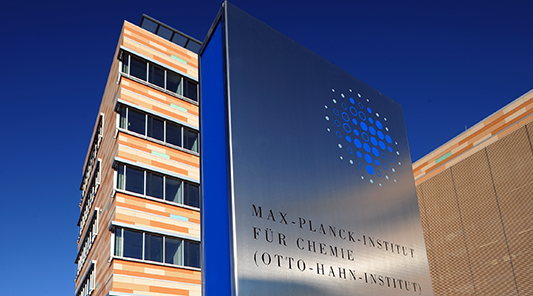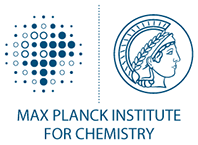Max Planck Institute For Chemistry


With the StorNext platform, we can keep data readily and transparently accessible to multiple groups throughout the entire data lifecycle.


Distilling Climate Data to Fuel Scientific Research with StorNext at Max Planck Institutes
The Max Planck Society harnesses cutting-edge technology to support a wide range of scientific research. The Max Planck Institute for Chemistry needed to better manage research data—keeping researchers focused on science instead of the underlying technology.
Enabling the World’s Leading Researchers to Make New Discoveries
Researchers within the 83 research institutes of the Max Planck Society explore a diverse array of scientific questions, ranging from how proteins function and how the brain supports speech to how the ozone affects the climate. Attracting the world’s leading researchers, the Max Planck Institutes focus on fields that can spur the most innovative research.
Many of the research projects conducted through the Max Planck Institutes require large-scale data management. “Scientific projects can generate tremendous amounts of data,” says Thomas Disper, chief information security officer and head of IT for the Max Planck Institute for Chemistry. “In addition to collecting raw data, we process data and keep the results—without impacting the science.”
Facing Demands of Fast Data Growth and Simultaneous Access
Research projects can quickly push the capacity limits of current storage environments. For example, a project that studies climate change in the Brazilian rainforest by measuring greenhouse gases, aerosol particles, and more, collects up to 80GB of data per day. IT groups need to not only protect and archive that rapidly growing collection of data but also provide simultaneous access for multiple research groups.
Deploying Quantum StorNext with Help from microstaxx
The IT group learned about the Quantum StorNext platform from German IT service provider microstaxx, which specializes in working with research institutions. After an intensive evaluation phase, the StorNext platform proved to be the right choice for the Max Planck Institute for Chemistry. “Our new solution based on StorNext gives us the performance to support multiple parallel streams of data—which keeps research far away from bottlenecks,” says Disper.
Overcoming Skyrocketing Data Growth
The StorNext platform, in concert with Fujitsu primary storage, enables the IT group to rapidly scale storage. “StorNext allows us to provide a lot more capacity quickly and easily,” says Disper. “We don’t need to give research teams data limits, and storage for new projects can be ready in an afternoon.”
Enabling Flexible Access to Data
The StorNext platform provides a shared file system that enables numerous research teams to simultaneously access data. “With the StorNext platform, we can keep data readily and transparently accessible to multiple groups throughout the entire data lifecycle,” explains Disper. By providing robust performance and sizable capacity, the StorNext platform has helped reduce the need for research groups to acquire and maintain their own storage environments.
Protecting Research for the Long Term
With the multi-tier StorNext data management platform and the Quantum Scalar i6000 tape library, the IT group can protect research data automatically and continuously in the background.
Quantum’s policy-driven Extended Data Life Management (EDLM) capabilities help prevent data loss on the tapes. “When tapes are stored on a shelf, they can potentially deteriorate and become impossible to read,” says Disper. “The EDLM software periodically checks the data and copies data to new tapes if something is wrong. We can make sure researchers can continue to access data for years to come.”
Removing Barriers to Research
With the StorNext platform in place, the Max Planck Institute for Chemistry is better prepared for whatever lies ahead. “We now have the agility to handle sudden changes in research requirements,” says Disper. “We can increase capacity or data throughput when needed.”
Researchers can move forward with less concern about the underlying technology. “With the StorNext platform, we have removed barriers to research,” says Disper. “Paired with solution design, project management and implementation services from microstaxx, the Quantum solution is the perfect match for us.”


